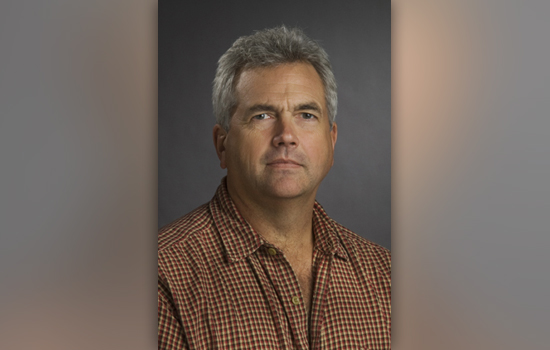Brian Thorn wins Excellence in Teaching award
RIT professor recognized for leadership, curriculum development and international service initiatives
Brian Thorn
Using beet juice as an alternative in products to de-ice roads, exploring the environmental impact of food packaging materials, or building an Arborloo are only a few of the ways Brian Thorn encourages his students to think about how sustainability can be applied to solving engineering challenges.
It is this type of encouragement that has made Thorn and his students successful, and he will be presented the Sustainable Development Excellence in Teaching Sustainability Award by the Institute of Industrial Engineers for these efforts both in and out of the classroom at its upcoming annual meeting and conference in Nashville this June.
The associate professor at Rochester Institute of Technology is being recognized for his leadership, innovation and excellence in teaching sustainability principles within the university’s industrial and systems engineering program, and integrating ways to apply that learning in real world situations.
“I have known and collaborated with Brian Thorn for over 15 years in various capacities and cannot think of an individual who has impacted the teaching and curriculum landscape of sustainability within industrial engineering more than he has,” said Andres Carrano, associate professor of engineering at Auburn University, in his nomination of Thorn. The two are colleagues, both teaching in RIT’s Kate Gleason College of Engineering before Carrano took a faculty position at Auburn.
Thorn ’80 (industrial engineering) has a background in sustainable product and process design, life cycle assessment and applied statistical methods. Many of RIT’s sustainable engineering courses focus on these areas and were developed by Thorn for a minor in the undergraduate engineering program, and for a master’s in sustainable engineering with specific topic areas in renewable energy systems, systems modeling, product design and engineering and policy management.
“Students are becoming very interested in environmental and social issues, and we are also seeing that reflected in some corporate behaviors as well. Organizations are starting to understand that they need technically oriented people who are prepared to deal with sustainability-themed problems. That’s where we come in,” said Thorn, who serves as director of sustainable engineering graduate programs, co-adviser of the Engineers for a Sustainable World student chapter at RIT and oversees the Sustainable Engineering Research Group.
RIT’s industrial and systems engineering program won the IIE’s 2009 Innovations in Curriculum Award, given to a college or university engineering program that integrates creative instruction with relevant topics to meet the changing needs of the industrial engineering profession. The RIT program was awarded for the “Integration of Sustainable Engineering into the Industrial Engineering Curriculum.” Thorn and Carrano shared the honors for the entry that tracked how sustainability initiatives affected program growth, new projects and increased student participation.
Thorn teaches or co-teaches Fundamentals of Sustainable Engineering, Lifecycle Cost Assessment, Design for Environment, and Engineering in the Developing World, and receives some of the highest evaluations in the department—well above department and college averages, said Scott Grasman, department head for industrial and systems engineering, adding that Thorn was awarded the ISE Excellence in Teaching Award as selected by the students in the classes.
“Another aspect that exemplifies Brian is the continued growth in sustainable engineering research within the department,” Gasman continued. “The practical and applied research not only leads to a close working relationship with students, but also integrates into the classroom to provide a balanced and state-of-the-art program for both thesis and non-thesis students.
“Brian is currently carrying a significant load related to proposal writing, project execution and graduate student advising. In addition, Brian has become an excellent mentor for junior faculty within the department, college and university.”
Outside of RIT, Thorn helped establish a research focus at the National Center for Remanufacturing and Resource Recovery with colleagues from the university, Carnegie Mellon and Arizona State Universities. He also mentored student-led projects for the Environmental Protection Agency, University-National Parks Energy Partnership, among others, that have garnered awards from the EPA’s National Design Expo and its People, Prosperity and the Planet initiatives.
Over the past several years, he has led student teams to Venezuela and Haiti where they have worked with community outreach organizations as part of the course Engineering and the Developing World.
The course has a service-learning component, and the students learn firsthand that many of the problems encountered are not necessarily high tech problems requiring high tech solutions.
“What we are trying to do now is have a sustainable presence in an area, where we can dig in deeper, where we can become a part of the fabric of the community, because that’s how you find the answers, through a longer-term presence. You gain the trust you need amongst the community,” he said. “We’re going to keep doing engineering we can feel good about.”






